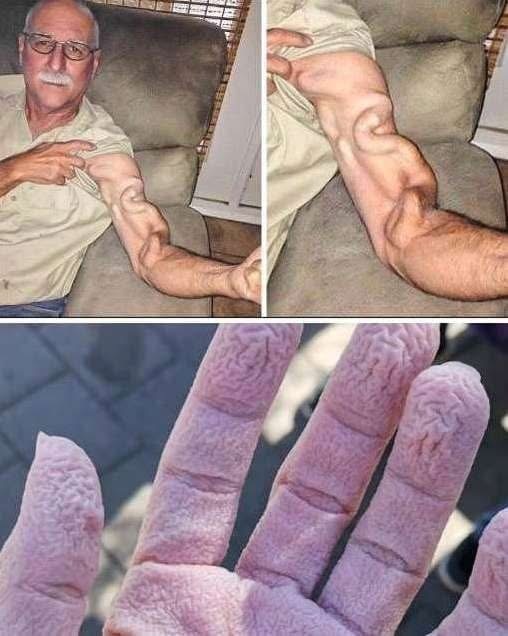Why You Drool While Sleeping — And What It Reveals About Your Health
Waking up to find your pillow damp can be surprising, embarrassing, or even amusing. While drooling during sleep is often harmless, it may also reveal important insights about your health, sleep quality, and lifestyle habits.
Drooling, medically known as sialorrhea, happens when excess saliva escapes from the mouth during sleep. For most people, it’s a normal occurrence once in a while. However, frequent or excessive drooling may point to underlying issues that deserve attention.
In this article, we will explore the common reasons behind nighttime drooling, when it could signal a health concern, and what you can do to reduce it naturally.
Understanding Why Drooling Happens
Saliva plays an essential role in digestion, oral health, and keeping the mouth moist. During the day, we swallow saliva automatically without even thinking about it. At night, especially when in deep sleep, our swallowing reflex slows down. If excess saliva accumulates, it may leak out of the mouth.
The causes range from simple sleeping positions to more complex medical conditions. Recognizing the difference is the first step toward better sleep and peace of mind.
Sleeping With Your Mouth Open: The Most Common Cause
The number one reason most people drool at night is sleeping with the mouth open.
Why It Happens
When lying on your side or stomach, gravity naturally pulls saliva downward, allowing it to escape from your mouth. This is even more likely if your nasal passages are blocked due to:
- Allergies
- A common cold
- Sinus infections
When nasal breathing becomes difficult, the body compensates by breathing through the mouth, increasing drooling.
Quick Fix
Try sleeping on your back with a supportive pillow. This position helps keep saliva in the mouth and promotes better airflow through the nose.
Medications That Increase Saliva Production
Some medications can make you drool more than usual at night. Few people realize that what they take daily might be influencing their sleep comfort.
Common Medications Linked to Drooling
- Antibiotics – Certain types stimulate saliva production.
- Sedatives – Relaxing the body too much can reduce the swallowing reflex.
- Antipsychotics – Some treatments for mood or mental health conditions cause salivation.
- Pain relievers like ibuprofen – In rare cases, they can increase saliva flow.
What You Can Do
If you suspect medication is contributing, do not stop taking it on your own. Instead, consult your doctor. Adjustments to dosage or alternative prescriptions may help reduce drooling while maintaining treatment effectiveness.
Deeper Causes: When to Investigate
In some cases, drooling is more than just a sleeping habit—it may signal an underlying condition.
1. Sleep Apnea
Characterized by loud snoring, interrupted breathing, and constant morning fatigue, sleep apnea often goes hand in hand with nighttime drooling. Treatments such as CPAP (Continuous Positive Airway Pressure) therapy can reduce both symptoms and improve overall sleep quality.
2. Gastroesophageal Reflux Disease (GERD)
GERD causes stomach acid to flow back into the esophagus, irritating the throat and triggering extra saliva as a protective response. If you also experience frequent heartburn, this may be the reason behind your drooling.
3. Nasal or Throat Issues
Conditions such as a deviated septum, enlarged tonsils, or chronic sinus inflammation can make it difficult to breathe through the nose, forcing mouth breathing during sleep. This naturally leads to more drooling.
Surprising Factors Behind Drooling
Not all causes are obvious. Some surprising triggers may explain why drooling happens more often for certain people.
Dental and Oral Health Problems
Gum inflammation, dental infections, or poorly fitting dental appliances can change the way your mouth holds and manages saliva.
Pregnancy (Gestational Ptyalism)
Hormonal changes during pregnancy sometimes increase saliva production. Some women report the need to spit more often or drool at night due to this condition.
Vitamin B12 Deficiency
This essential vitamin supports nerve health and muscle control. A deficiency may affect swallowing reflexes, contributing to excess drooling.
How to Reduce Nighttime Drooling
If drooling is bothersome, there are several lifestyle adjustments and medical options to consider.
Simple Lifestyle Changes
- Change your sleeping position – Sleeping on your back is the most effective way to minimize drooling.
- Use a supportive pillow – Elevating the head slightly reduces saliva pooling.
- Stay hydrated – Dry mouth during the day can trigger the body to produce more saliva at night.
- Avoid heavy, greasy meals before bed – Digestive strain can worsen reflux and increase saliva production.
Medical and Therapeutic Options
- Mandibular devices – Oral appliances can reposition the jaw, reduce teeth grinding, and improve airflow.
- CPAP therapy – For sleep apnea patients, this treatment can significantly reduce drooling and improve breathing.
- Botox injections – In certain cases, doctors may recommend targeted injections to reduce saliva production.
- Minor surgery – Reserved for chronic and severe cases where structural issues cause persistent drooling.
Frequently Asked Questions (FAQ)
Is drooling at night normal?
Yes. Occasional drooling is common and usually harmless. It only becomes concerning if it’s frequent or excessive.
Should I see a doctor every time this happens?
Not necessarily. Medical advice is recommended if drooling is paired with symptoms like loud snoring, chronic heartburn, mouth pain, or poor sleep quality.
Does sleeping on my side always cause drooling?
Not always, but side sleeping increases the chance, especially if your mouth naturally falls open during rest.
Are there serious risks linked to drooling?
Drooling itself is not dangerous. The concern arises when it signals conditions like sleep apnea or GERD, which require proper treatment.
When to Seek Medical Help
You should consult a healthcare professional if:
- Drooling is frequent and disrupts your sleep.
- It is accompanied by breathing difficulties or loud snoring.
- You experience chronic heartburn or signs of reflux.
- You notice persistent mouth or throat pain.
A doctor may recommend tests such as a sleep study, nasal examination, or reflux evaluation to determine the exact cause.
Final Thoughts
Drooling while sleeping may feel embarrassing, but in most cases, it is nothing more than a normal body response. Still, your body could be sending you important signals. By paying attention to the frequency and accompanying symptoms, you can determine whether it’s harmless or something that requires medical care.
The good news is that simple lifestyle adjustments, medical guidance, and better sleep habits can help you keep your pillow dry and your nights restful.





